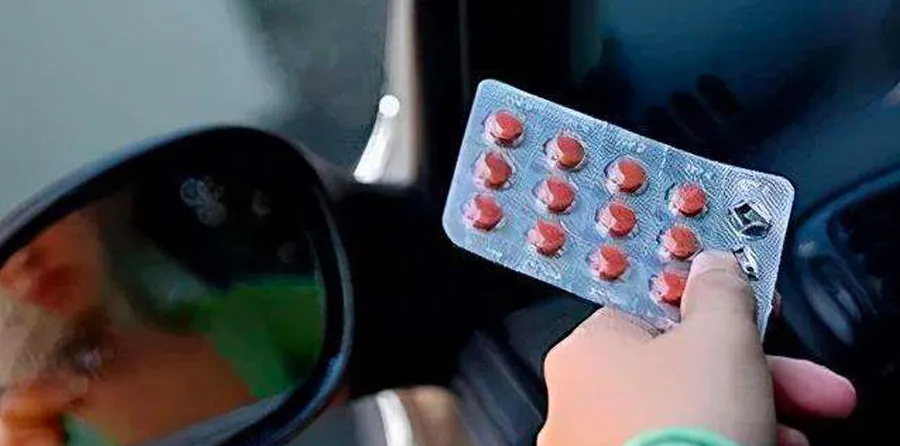Author: Hong Huaizhang, Department of Pharmacy, First People's Hospital of Huizhou City
The Spring Festival is approaching, happy to go home for the New Year, self-driving is inevitable. If you or your friend happens to be taking medicine, it's important to pay attention: take your medicine and drive, and sometimes you "fight". Especially if you are taking the following medicines, you should never drive.

Antihistamines: histamine H1 receptor antagonists
Reversible competition on histamine receptor sites on cells prevents histamine from acting on target cells, exerting an allergic effect by blocking and antagonizing H1 receptors.
First-generation H1 receptor antagonist
The molecular weight of such drugs is small and fat-soluble, and it is easy to enter the brain tissue through the blood-brain barrier and have an inhibitory effect on the central nervous system such as sedation and drowsiness. Therefore, patients in special occupations such as drivers should avoid the use of this class of drugs, but should avoid driving when they must be used due to special circumstances.
Related drugs: diphenhydramine, promethazine, chlorpheniramine, cyproheptadine. Other compound preparations also include the above ingredients, such as: aminophenol xanamin, meimin pseudo-anesthesia, cold clear capsules, rhinitis kang, vitamin C silver tablets and so on.
Second-generation H1 receptor antagonist
There is little or less inhibition of the central nervous system and anticholinergic effect, sedation and drowsiness adverse effects are relatively weak, and the anti-allergic effect is long-lasting, so there is a tendency to gradually replace the first generation of anti-H1 receptor blockers, more suitable for patients in special occupations such as drivers. However, due to individual differences, it should also be decided in combination with their own health status, and when the body has abnormal reactions, it should avoid driving as soon as possible.
Related drugs: cetirizine, loratadine, mimizostine, astemizole, etc.
Sedative hypnotics
Such drugs have a widespread inhibitory effect on the central nervous system, resulting in dizziness, drowsiness, blurred vision, decreased concentration, muscle twitching, trembling fingers and other adverse reactions. Usually taken at bedtime.
Related drugs: diazepam tablets, alprazolam tablets, escolam tablets, zolpidem tablets, etc.
Other drugs
Drugs, stimulants, anti-epileptic drugs, pain relievers, antihypertensive drugs and hypoglycemic drugs that can cause nausea and vomiting reactions or allergic reactions may cause adverse reactions such as headache, dizziness, hypotension, and hypoglycemia, thus affecting driving safety, and we should also pay enough attention.
Related drugs: tramadol, ibuprofen, diclofenac sodium, nifedipine, propranolol, codeine, insulin, glibenclamide, roxithromycin, clarithromycin, azithromycin, metronidazole, doxycycline, erythromycin, mexirol, amantadine, amitriptyline, doxapine, propmizine, interferon, omeprazole, lasoprazole, pantoprazole, cimetidine, digoxin, aspirin, zidovudine, fluoxetine, paroxetine, etc.
In short, due to the duality of the drug and individual differences, the instructions should be carefully read during taking the drug, when the precautions in the instructions, there are "do not drive the machine, car, boat, engage in high-altitude work, mechanical action and operation of precision instruments" after taking the drug, you should be vigilant and avoid driving a motor vehicle.
For the safety of you and others, remember to drive "medicine" safely during the Spring Festival and go home safely for the New Year.
The above is the original work of the volunteers of the "Drug Safety Cooperation Alliance", if you reprint, please indicate the author and source!
【Medicine Shield Public Welfare】PSM Pharmaceutical Shield Public Welfare (public number: PSMChina), a public welfare organization jointly initiated and established by the China Over-the-Counter Drug Association, the Chinese Pharmaceutical Association, etc., gathers resources, gathers strength, and promotes the safety of public medication.